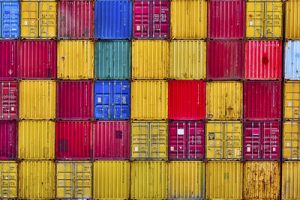 A campaign aimed at curbing criminal activity could cause headaches for those legally sending recyclable materials across the Pacific Ocean.
A campaign aimed at curbing criminal activity could cause headaches for those legally sending recyclable materials across the Pacific Ocean.
China’s General Administration of Customs announced it will launch the one-year campaign, which will target “foreign waste,” including plastics, industrial waste, electronics and other household waste materials.
The effort is part of a larger initiative some are translating into English as “National Sword 2017,” which is also targeting the smuggling, particularly by organized crime, of agricultural products, resource products, drugs, guns and more. It comes four years after China initiated its Operation Green Fence, an imports-enforcement campaign that sent ripples through the North American recycling supply chain.
The Institute of Scrap Recycling Industries (ISRI) is monitoring the new campaign and its impacts on companies sending shipments of recovered material from the U.S. to China. It first reported the new effort on Feb. 10 and provided an update on Feb. 15.
Echoes of Green Fence
In 2013, China launched Operation Green Fence, which targeted low-quality bales being shipped to China. The operation precipitated a drop in U.S. recyclables exports to China while opening opportunities for domestic reclaimers and helping to drive improvements in bale quality. In fall 2015, China launched a separate one-month crackdown focused on plastics.
Despite the new campaign’s aggressive name, it may not have as much of an impact on U.S. exporters as Operation Green Fence did.
“As compared with ‘Operation Green Fence,’ the market is less (panicked) this time due to the fact that market players are more disciplined than years ago,” said Steve Wong, executive president of the China Scrap Plastics Association (CSPA) and chairman of plastics recycling company Fukutomi. “Nevertheless, impacts are anticipated as more customs checks would be exercised, which means time and costs.”
Based in Hong Kong, Wong’s company sources recovered plastics from 15 countries, including large volumes from the U.S. and Europe. Wong is a member of the Plastics Committee of the Bureau of International Recycling (BIR), which reported the campaign on Feb. 9. He will speak at next month’s Plastics Recycling 2017 conference during a session focused on changes in China’s plastics recycling market.
What the new campaign entails
The General Administration of Customs (GAC) decided to launch the campaign during a Feb. 7 meeting in Beijing, according to Wong, who translated the name of the effort as “Border-gate Sword 2017” and noted that some are translating it as “National Sword 2017.” A translated article from Xinhua News Agency refers to the campaign as “Sharp Sword at the Gates of the Country 2017.”
Wong provided translated text from GAC’s press release, which pledges a focused crackdown on smuggling and illicit activities related to recyclable and waste materials. It noted GAC would cooperate with China’s environmental protection department to intercept “foreign waste” at ports of entry in order to protect public health and the environment.
ISRI provided additional details on the measures announced by GAC. Those included the following actions:
- Implementing waste management systems and encouraging the establishment and use of centralized metals and plastics recycling parks in China.
- Tightening supervision at ports and preventing small ports from processing imported metals and plastics they’re not equipped to handle.
- Increasing corruption awareness and boosting enforcement against corrupt customs officials.
- Tightening rules for compliance with waste import regulations, including higher penalties for smugglers.
“As the situation is evolving and we continue to reach out for more detailed information, we urge ISRI members to keep us informed of any challenges you face in preparing shipments for, and facilitating the transport of, scrap to China,” according to ISRI.



